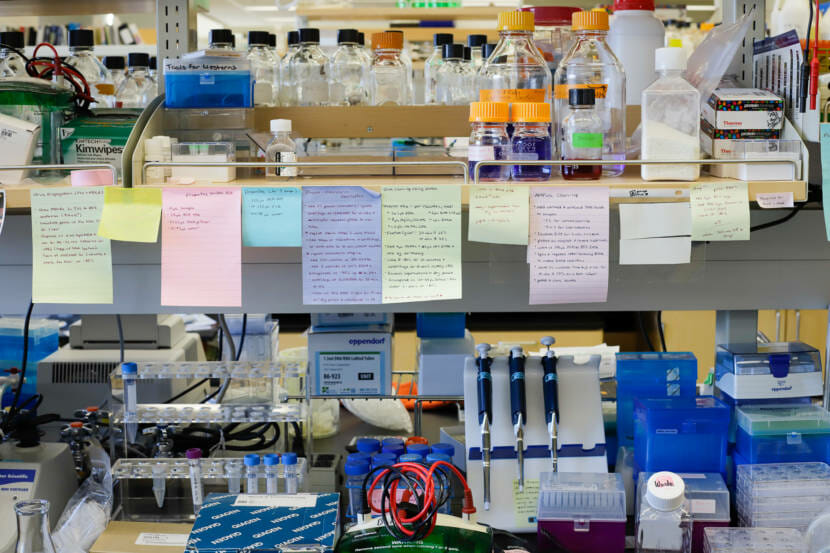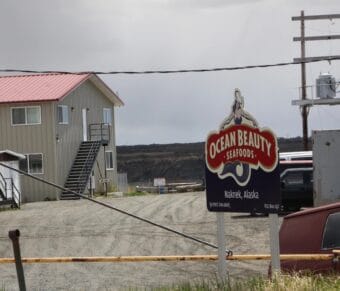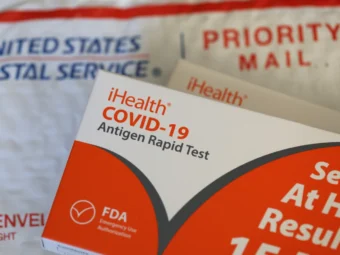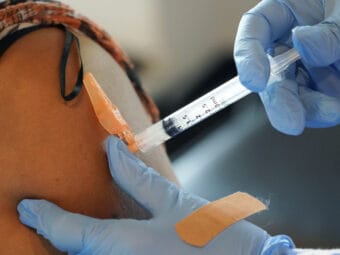
Emergency room doctors in Anchorage sounded dire warnings about the city’s hospital capacity Friday at a medical update to the Anchorage Assembly.
Doctors who work at Anchorage’s main hospitals described heart-wrenching scenes from the last week of last goodbyes to unvaccinated loved ones, nurses quitting their jobs due to burnout, and infants hospitalized for severe cases of COVID-19.
“We are on the verge of a hospital system collapse,” said Dr. Andrea Caballero, an infectious disease doctor who also works at Providence Hospital.
“And that happens when you have the right number of patients and acuity, staff burnout, which leads to staff shortages, and supply shortages. This is a very, very imminent reality,” she said.
Doctors said that after a year and a half of the pandemic, hospital staff are demoralized from working long hours and treating preventable COVID-19 cases in unvaccinated patients. Doctors said they’ve seen an increasing number of nurses and other health care workers quit their jobs. Increased community transmission also means that those workers are more exposed to COVID, forcing them to take days off.
The shortage means that ICU patients have fewer nurses assigned to them.
“The nursing ratio is usually 2-to-1 — two patients for one nurse — but we are consistently pushing it to three to one, which is a dangerous intervention that is used only in times of desperation,” said Dr. Javid Kamali, an intensivist who works at Alaska Regional.
It also means that emergency rooms are forced to keep patients longer instead of passing them off to ICUs, delaying the time before doctors can admit patients with less urgent injuries.
“We’re seeing [waits of] four and five hours sometimes now. And that’s really because our flow is so disrupted,” said Dr. Ivan Ramirez, an emergency doctor who works at Providence.
The number of COVID-19 hospitalizations is at its highest level since December in Anchorage and appears to be growing. Thomas Hennessy, an epidemiologist at the University of Alaska Anchorage, recommended the Bronson administration institute a vaccine requirement for municipal employees and mandatory masking.
“In Anchorage, we won’t need to wear a mask forever. But while infections are surging, we should take this simple, inexpensive and effective step,” he said.
But Anchorage’s Chief Medical Officer, Dr. Michael Savitt, signaled that he was unlikely to recommend any mask or vaccine mandates to the mayor. He said he’s preparing a recommendation to the mayor that municipal workers start teleworking, but said that the city will rely on voluntary compliance.
“I think we’re already at the point where we need to — for lack of a better way of putting it — strongly encourage people to wear those masks, follow those recommendations. That’s going to be our first line of defense. Secondly, get people vaccinated,” he said.
Bronson was elected on a platform of opposing the Assembly and former mayor’s COVID mitigation measures. On his first day in office, he declared masks were optional in city buildings.
But experts argued that the situation had fundamentally changed due to the delta variant of COVID, which accounts for over 95% of cases in the state.
“When the election was held in April in the runoff in May, we were in a situation where the epidemic was waning, case counts were going down or hospital capacity was in a much different place, we had widely available vaccinations. It looked like we were winning,” said Hennesy. “Now we’re in a different position. Right now, we have a new virus that’s more deadly.”
Savitt, and most assembly members, did not wear masks at the meeting, even though the Centers for Disease Control and Prevention recommends them for indoor settings.
Assembly Member Meg Zaletel says she will likely introduce a resolution at next week’s meeting asking for a mask requirement, but it would have no enforceable component unless the mayor takes action.



